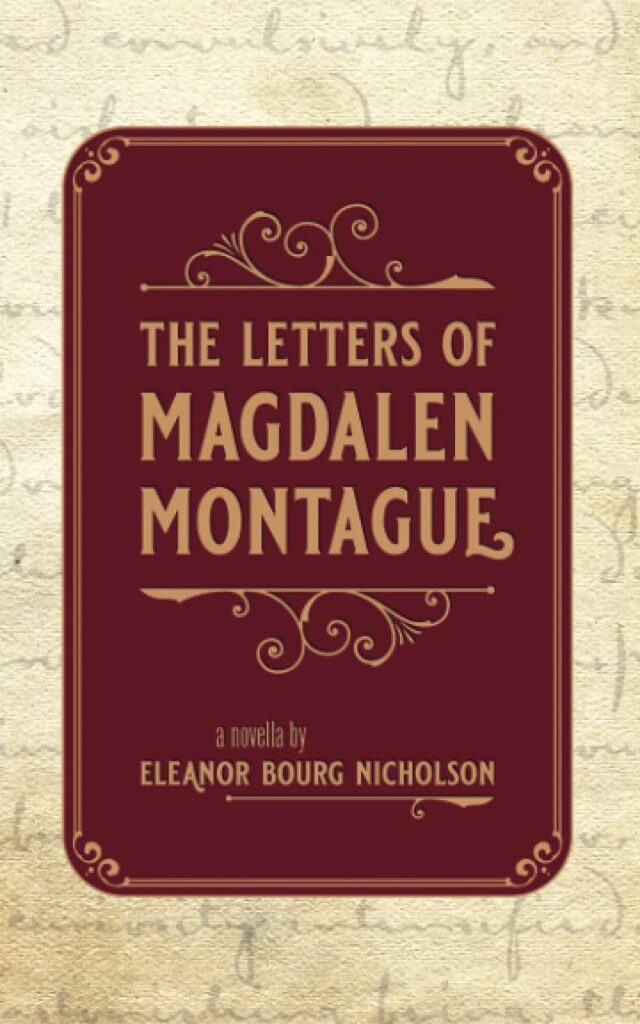
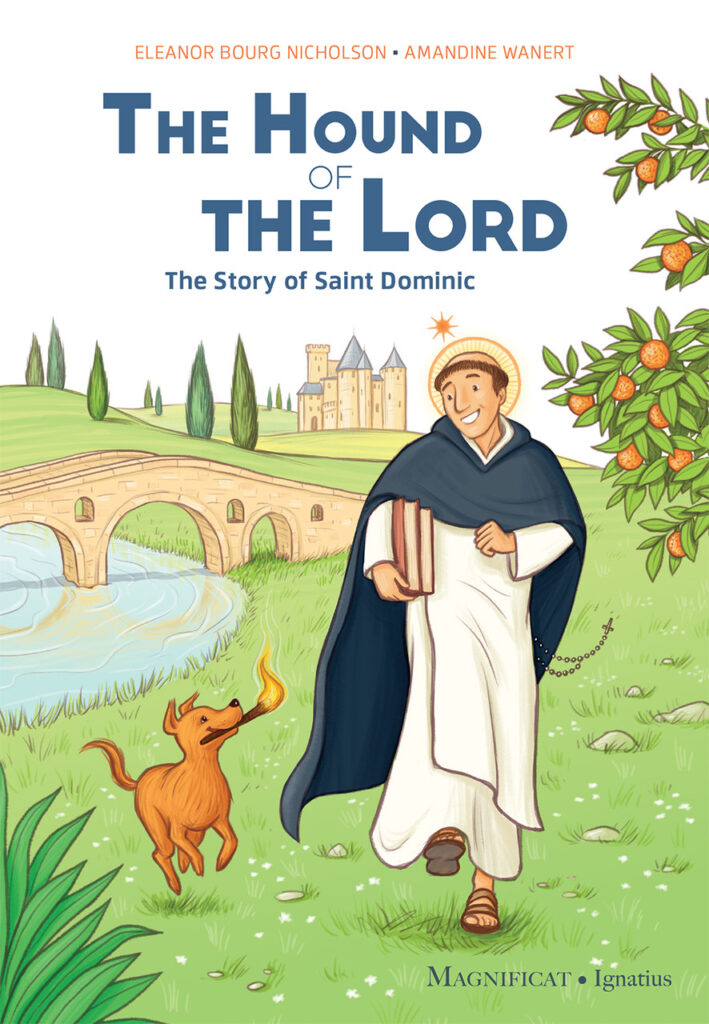
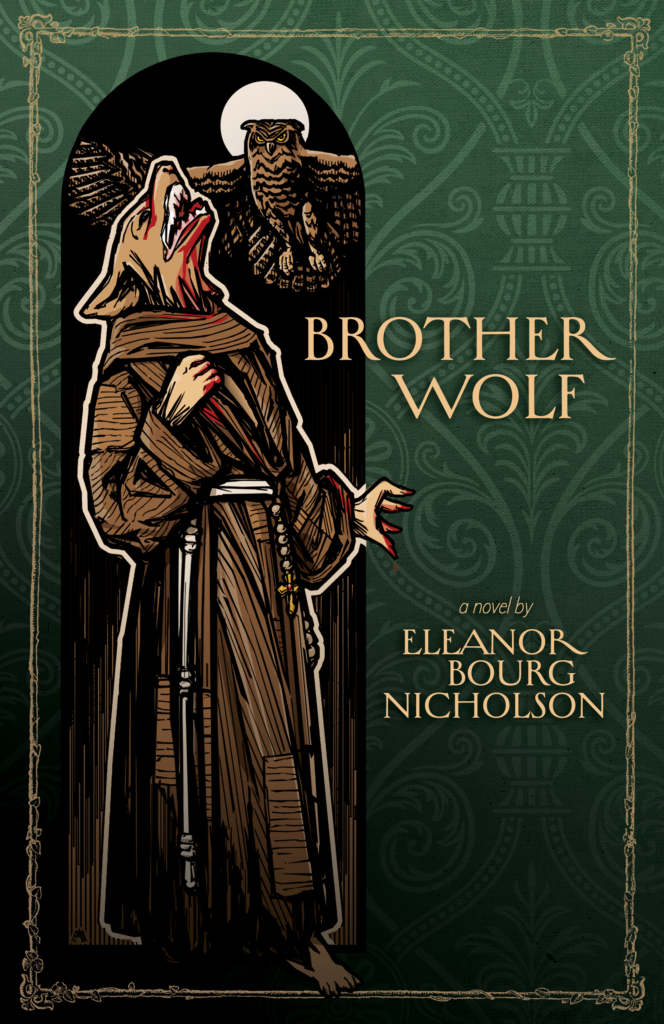
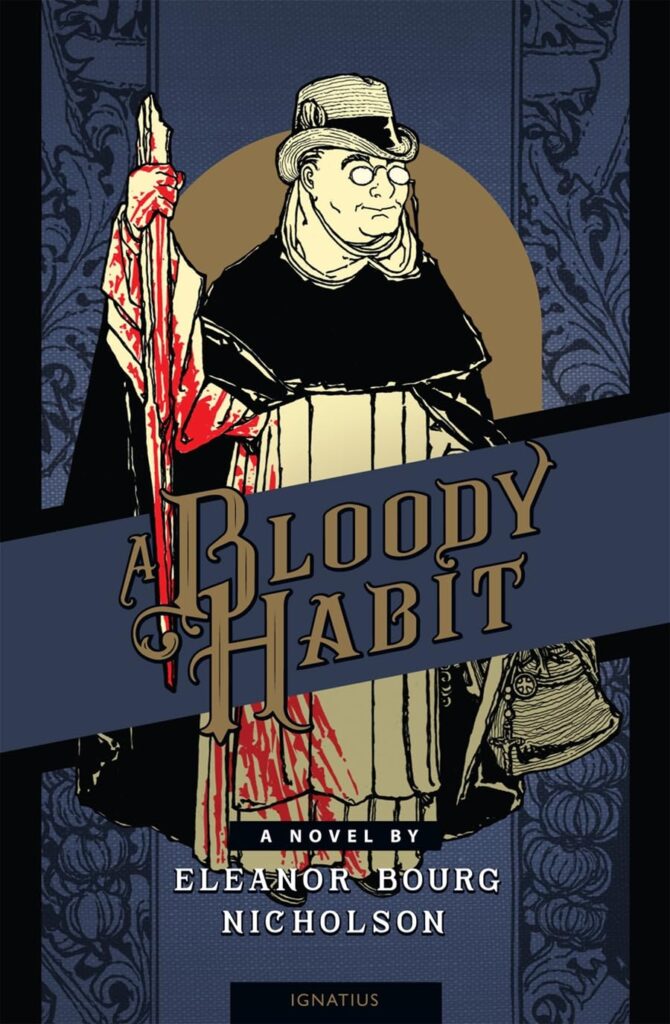
Wake of Malice
Chrism Press, 2024
When Father Michael Walsh, a Jesuit priest on the western coast of Ireland, faces a charge of embezzlement, a London newspaper sends expatriate Irish reporter Hugh Buckley home to deliver a story—or else. Buckley and his photographer colleague Frederick Jones arrive in the village of Doolin to find themselves embroiled in a tangled mess of parish politics, occult practices, and bloody murder. By night, as wicked things rise from the earth, Buckley faces his own long-repressed struggles with his country, his abandoned faith, and his dead family. By day, he finds help, both professional and personal, from English Dominican friar Father Thomas Edmund Gilroy, OP, who has come to Doolin to support his friend Father Michael and to aid in the spiritual battle against the occult.
Can Hugh and Freddie save their employment—and their skins—as the grotesque violence intensifies? Or will they and the rest of the village of Doolin be consumed by dark powers lurking within the mysterious landscape of Ireland?
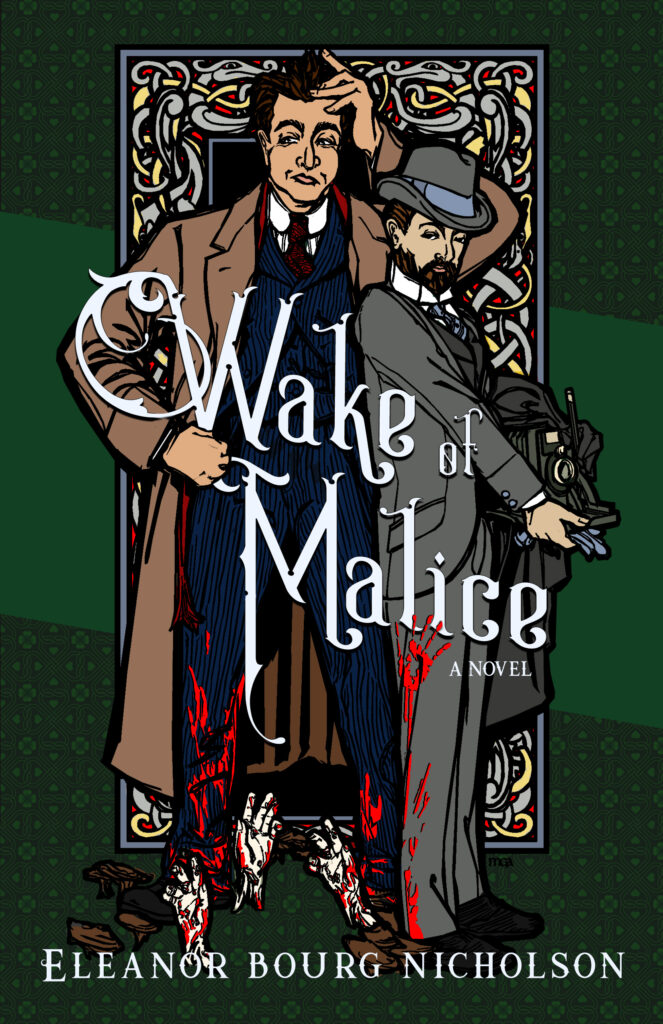
WOMEN OF THE CATHOLIC IMAGINATION
Twelve Inspired Women You Should Know
Word on Fire, 2024
(Chapter contributed on Josephine Ward.) There is no lack of talented women in the Catholic literary tradition. Yet these brilliant writers are often unfamiliar to today’s readers, or, if widely read, their Catholic identity is unrecognized. This collection introduces a dozen Catholic women novelists from the past two hundred years, presenting their fascinating lives, spiritual biographies, and sacramental vision in essays by twelve Catholic scholars and writers. Edited by Haley Stewart and with a conclusion by bestselling author Natalia Sanmartin Fenollera, Women of the Catholic Imagination encourages the expansion of the Catholic literary canon by bringing these inspired writers back into the spotlight, laying the foundation for the reader’s discovery (or rediscovery) of their masterful works.
THE HOUND OF THE LORD
Ignatius Press, 2023
The Hound of the Lord is the story of Saint Dominic as told by the legendary dog Torch. This faithful, ever-watchful canine companion vividly describes the founder of the Dominican Order and the many challenges he faced while preaching the Gospel throughout medieval Europe. (For children; not a frightening book, unless you really think hard about Albigensianism.)
BROTHER WOLF
Chrism Press, 2021
2022 CMA Book Awards Winner
For Athene Howard, the only child of renowned cultural anthropologist Charles Howard, life is an unexciting, disillusioned academic project. When she encounters a clairvoyant Dominican postulant, a stern nun, and a recusant English nobleman embarked on a quest for a feral Franciscan werewolf, the strange new world of enchantment and horror intoxicates and delights her—even as it brings to light her father’s complex past and his long-dormant relationship with the Church of Rome. Can Athene and her newfound compatriots battle against the ruthless forces of darkness that howl for the overthrow of civilization and the devouring of so many wounded souls? In this sister novel to A Bloody Habit, the incomparable Father Thomas Edmund Gilroy, O.P. returns to face occult demons and undead revenants, accompanying a charming neo-pagan heroine in her earnest search for adventure and meaning. A lurid tale of patricide, gypsy curses, possessed maidens, romance, and the hunt for a tormented werewolf awaits you!
PRAISE
Brother Wolf is a book you don’t just read—you live in it. It’s a splendid Gothic mystery and a convincing werewolf story with an endlessly intriguing cast of characters. —Tim Powers, bestselling author
Even though they love animals, modern Franciscans don’t admit werewolves to their Order. But if they did, they should be prepared in case Brother Wolf starts running amuck. That is exactly what happens in this Catholic horror novel set at the beginning of the twentieth century. Add in an attempt to destroy the European economy, an apostate priest, an unlikely romance, and the shocking appearance of the demon known to the Romans as the goddess Diana. Thank goodness those friars were able to enlist the aid of the renowned vampire-hunting Dominican, Fr. Thomas Edmund Gilroy, O.P., first introduced to us in A Bloody Habit. Yes, be prepared for a wild ride when the fur starts to fly. — Augustine Thompson, O.P., author of Francis of Assisi: A New Biography
Read more about the bookcover: The Making of a Cover
Read more about the narrator, Athene Howard: The Birth of a Narrator
REVIEWS & INTERVIEWS
- Catholic Author: Sillouettes of Truth (Smart Catholics Interview)
- Brother Wolf: A Realistic Victorian Gothic Preternatural Mystery Novel (Dominicana)
- Tales with De Sales (Podcast)
- Cross Word Podcast Interview (August 2021)
- Interview by Jesse Russell (Dappled Things)
- Catholic Read Review (September 2021)
- Cath-Lit Live Interview (September 2021)
THE LETTERS OF MAGDALEN MONTAGUE
Chrism Press, 2021
When the amoral and cynical J takes up his pen to describe Magdalen Montague, he little realizes the dramatic changes that will soon be wrought in his life. His fascination for this mysterious woman catapults him into a harrowing encounter with Catholicism, conversion, and discipleship. Through the letters, intimate portraits of four souls appear: the loquacious letter-writer J , his virulently anti-religious recipient R , the silently holy Domokos Juhász, and Magdalen Montague herself. The novella boldly addresses themes of grace, faith, evil, sacrifice, spiritual exile, martyrdom of the everyday, and the redemptive power of narrative, all mediated through the deftly-wielded pen of the protagonist. Drawing largely on the traditions of Decadent literature, The Letters of Magdalen Montague presents a profound portrait of humanity’s quest for God.
CatholicReads review available here.
Today’s American Catholic review available here.
PRAISE
“Eleanor Nicholson has written an old-fashioned epistolary novel of religious awakening and vocation. Set in the heady intellectual and hedonistic milieu of Edwardian England, it mixes elements of Waugh, Wilde, Bernardos, and even a touch of Francis Thompson to create an intimate account of one skeptic’s decisive encounter with the Hound of Heaven. In this short book, Nicholson recaptures the energy of a great Catholic literary tradition.” — Dana Gioia, poet and former Chairman of the National Endowment of the Arts
“Magdalen Montague exhales the same exuberant and exotic air as Baudelaire, Huysmans and Wilde; a delicious vignette that illumines the path from debauchery to the Divine.” — Joseph Pearce, author of The Unmasking of Oscar Wilde
A BLOODY HABIT
Ignatius Press, 2018
It is 1900, the dawn of a new century. Even as the old Queen’s health fails, Victorian Britain stands monumental and strong upon a mountain of technological, scientific, and intellectual progress. For John Kemp, a straight-forward, unimaginative London lawyer, life seems reassuringly predictable yet forward-leaning, that is, until a foray into the recently published sensationalist novel Dracula, united with a chance meeting with an eccentric Dominican friar, catapults him into a bizarre, violent, and unsettling series of events.
As London is transfixed with terror at a bloody trail of murder and destruction, Kemp finds himself in its midst, besieged on all sides—in his friendships, as those close to him fall prey to vicious assault by an unknown assassin; in his deep attraction to an unconventional American heiress; and in his own professional respectability, for who can trust a lawyer who sees things which, by all sane reason, cannot exist? Can his mundane, sensible life—and his skeptical mind—withstand vampires? Can this everyday Englishman survive his encounter with perhaps an even more sinister threat—the white-robed Papists who claim to be vampire slayers?
PRAISE
“A real 19th century Gothic vampire story, rich and colorful, and wonderfully full of foreboding. The characters are vivid and convincing, and the historical locales make the supernatural element effective and affecting as it builds to the point where our protagonist must recognize it and confront it.” — Tim Powers, Best-Selling Novelist; Author, On Stranger Tides
“Imagine a cross between Dracula and The Exorcist, written with the literary flourish of the former and the Catholic sensibility of the latter, and you will have some idea of how this heavenly hybrid on a hellish theme speaks with such death-defying and grave-shattering power in this work.” — Joseph Pearce, Editor, Ignatius Critical Editions; Author, The Quest for Shakespeare
“Nicholson writes with an impeccable ear for turn-of-the-century English and a dry wit worthy of George Bernard Shaw that makes A Bloody Habit a brilliant combination of edification and fun.” — Karen Ullo, Author, Jennifer the Damned and Cinder Allia
“Although some scant modern writing exists on the mysterious subject of vampires, A Bloody Habit is the first real theological examination of the origins of the vampire state and of the classical battle waged by the Dominican Order against the vampire phenomenon. Eleanor Nicholson’s work manages in narrative form both thoroughly to entertain and occasionally to terrify the reader. Her book is an example of magnificent Catholic literature.” —Thomas Joseph White, O.P., Author, The Light of Christ
IGNATIUS CRITICAL EDITIONS
Mansfield Park
In all things, Jane Austen was a woman of faith. Perhaps nowhere is this more apparent than in Mansfield Park, her most neglected, abused, and misunderstood novel. Like Austen’s other novels, it can be fully appreciated only when illuminated by the virtuous life and Christian beliefs of the author herself.
Dracula
Often vacillating wildly between the terrible and the comic, Dracula at the same time brings to life a host of compelling themes: tensions between antiquity and modernity; the powers and limitations of technology; the critical importance of feminine virtue; the difference between superstition and religion; the nature of evil; and, perhaps most compellingly, the complex relationship between ancient faith and scientific enlightenment. More vivid than any of its varied film adaptations, and over a century after its first publication, Dracula still retains its sharp bite.
Sense & Sensibility
In this, her first published novel, we see the sense and sensibility of Miss Austen herself, which combine to form the brilliance that shines forth in all of her works—a brilliance enlivened by her remarkable sense of humor and the affectionate kindness that could only be born of a gracious Christian spirit.
Jane Eyre (Critical Essay Contributed)
One of the finest novels ever written, Jane Eyre is also one of the most misunderstood masterpieces of world literature. Whereas most modern teaching of the text misreads or misinterprets Charlotte Bronte’s devout and profoundly ingrained Christian faith and intentions, this critical edition emphasizes the semi-autobiographical dimension of the novel, exposing feminist critiques of the work as being woefully awry and illustrating Bronte’s belief in the hard-earned, hard-learned blessings of sanctity and reverence.
